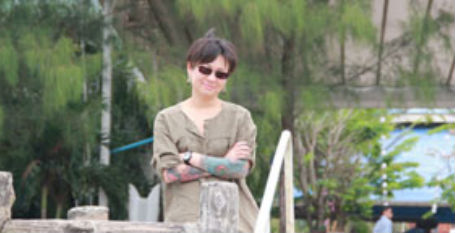Mobilizing Gay Singapore, is a ground breaking new book by Lynette J. Chua, an Assistant Professor of Law at the National University of Singapore, that tracks the rise of the Singapore LGBT movement over the last twenty years. We speak to Lynette to find out more about the movement’s tactics and the future of the Singapore LGBT movement.
Why did you decide to write this book and why was it important?
Gay and lesbian movements outside Western liberal democratic contexts, particularly in Asia, are understudied. I was drawn to how activists mobilize in such contexts – not only do they make claims for equality based on their sexuality, which is an uphill challenge in itself, but they also have to deal with political, social, and legal conditions that constrain collective action.
The title mobilizing gay Singapore sounds like a call to action. What do you hope your readers get out of this book? And did you have an audience in mind when you were writing your narrative?
The title is not intended as a call for action. Rather, it is to describe what movements usually do – mobilize people. In my discussions with my publisher, Temple University Press, we wanted to have a title that contains a verb rather than simply nouns. We also wanted the main title (the part before the colon) to convey the following succinctly, that is, the book is about a gay movement in a non-Western liberal democracy. So I think we managed to do all of the above with three words.
Your book uses “pragmatic resistance” to explain the strategy of Singapore’s gay activists. What are the implications of such a strategy?
The analytic concept of “pragmatic resistance” as a strategy emerged from my analysis of ethnographic data collected on Singapore’s gay activists and the movement; it is not a strategy that I prescribe. It explains how activists adjust, change, and scale down or up their strategy and tactics on the one hand to advance their movement, as all activists strive to do, and on the other hand to maintain its survival and protect it from repression and retaliation. In my book, I examine the strategy’s contributions to the movement as well as its potential weaknesses. I also discuss how the concept relates to understandings of mobilization and repression in social movements studies and the role of law and the meanings of rights in socio-legal scholarship.
You have given everyone in your book a pseudonyms. If you had to pick one what would be yours?
As a matter of standard practice in research ethics, I provide pseudonyms to names, places and organizations to protect the confidentiality of informants and respondents (unless they specifically waived confidentiality or are people whose actions had been reported in the media). I would not ask to pick a pseudonym. I would leave it to the researcher. The pseudonym should not be something that unconsciously or subconsciously reflects the preference of the interviewee, hence one’s identity.
Having been a historian of sorts by studying the last 20 years of the LGBT movement in Singapore, where do you see the movement heading in the next 5,10 years?
The aspects of the movement that focus on community outreach, social support, and raising social awareness will continue to develop, though they might expand or diversify to meet changing needs. As for legal reform, much will depend on the Court of Appeal’s decision on the constitutional challenge of Section 377A of the Penal Code. Both cases, Tan Eng Hong and Lim Meng Suang and Kenneth Chee Mun-Leong, will be heard by the Court of Appeal in July 2014.
Read the full interview in ELEMENT Vol.8 – The Hunk Issue.

